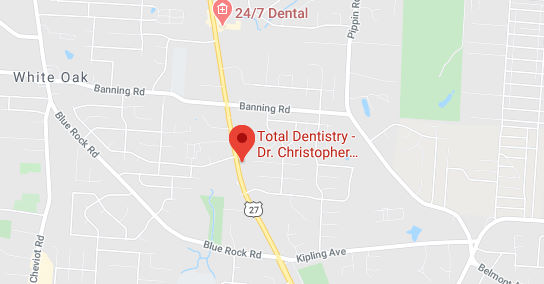Thank you for trusting us with your care. To ensure the long-term success of your new denture(s), please review and follow the instructions below.
When to call us
It’s normal to feel some discomfort as you adjust to a new denture. However, please contact our office right away if you experience any of the following:
- An allergic reaction to any prescribed medications
- A sore spot where the denture is rubbing
- Difficulty chewing or speaking that does not improve with time
- A bite that feels off or uneven once the denture settles
- Any issue with the implants, locator inserts, or denture such as looseness, irritation, broken denture, etc.
General Care Instructions for Removable Implant Dentures
Follow these instructions closely to help ensure the long-term success of your implant denture:
Getting Used to Your Denture
Adapting to your new denture: Most patients adjust to new dentures within 2 to 4 weeks, but this can vary. Be patient with yourself during the adjustment period.
- Speech practice: It may feel awkward to talk at first. Practice reading aloud to help your tongue adjust.
- Increased saliva: This is normal during the first few weeks and will improve as your mouth adapts.
- Eating: Begin with soft foods, cut into small pieces. Chew slowly and evenly on both sides to keep the denture stable.
Daily Maintenance
- Remove and clean daily: Take the denture out at night and after meals, if possible. Clean both the denture and the locator attachments with a soft brush and non-abrasive cleanser.
- Clean implants/abutments: Use a soft toothbrush, an interdental brush, or a water flosser to clean around the implants and the locator attachments in your mouth.
- Avoid abrasive products: Don’t use regular toothpaste (too abrasive). Use Denture cleanser instead.
Regular Maintenance
- Change locator inserts (nylon caps): The colored nylon inserts inside the denture that “snap” onto the implants wear out over time. Depending on use, they usually need replacing every 6-12 months (sometimes sooner if you remove/insert often or chew hard foods.)
- Professional check-ups: Visit your dentist every 6 months for:
- Checking implant health (bone and gum condition).
- Cleaning of denture and implants.
- Inspecting and replacing worn inserts.
- Adjusting the denture if retention becomes too loose or tight.
- Relines: Over time, gum and bone changes may require relining the denture for a proper fit.
Resting Your Gums
- Leave your denture out at night or for at least 6 continuous hours per day. This allows your tissues to breathe and helps prevent irritation and infection.
- Do not eat or drink anything until the anesthetic has worn off.
- Do not use the tooth to bite down on anything hard (peanuts, pretzels, ice, etc.) for 24 hours.
- You may floss and brush your tooth as normal, unless told otherwise by the doctor.
- Some minor discomfort in the area is possible following the crown or onlay. Sometimes, depending on circumstances, the tooth and surrounding tissues may remain sore for a few weeks post treatment. The three most common reasons for pain are:
- Sore jaw joint from having your mouth open for a prolonged time.
- Sore muscle from the injection site.
- Sore tooth when biting down from a “high bite.” This occurs when your new restoration is seated higher than your natural tooth was and can be quickly corrected by adjusting the restoration at our office. It is important that you get the bite adjusted right away to avoid breaking the restoration or damaging the nerve. If you experience a high bite, call the office at (513) 245-2200.
Additional Tips
- Store your dentures safely: Keep them in a denture case and out of reach of pets or children when not in use.
- Avoid sticky or hard foods: These can dislodge or damage the denture.
- Don’t try to adjust your denture yourself: If it doesn’t fit properly, call our office for a professional adjustment.
- Don’t try to repair your denture yourself: If your denture breaks or cracks, call our office for a repair appointment.
- Bring a denture case and cleanser when traveling. Never wrap your denture in a tissue, as it may accidentally be thrown away.
We’re Here to Help
Getting used to dentures is a process, and we’re here to support you every step of the way. If you have any questions or concerns, please don’t hesitate to call our office at 513-245-2200.

